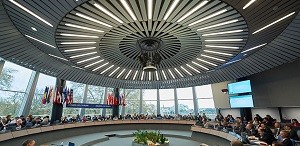European Court of Human Rights - ECHR, international legal protection of human rights and freedoms, compensation, international tribunal, lawyer at the ECHR, European Convention on Human Rights, International Court of Human Rights - ICHR.
Human Rights - European Court of Human Rights
- France - Strasbourg
Legal Services of a Lawyer at the ECHR:
- Legal Representation: Lawyers play a critical role in representing both applicants and respondent states. They provide legal advice, prepare and submit applications, and present cases during hearings.
- Legal Research and Analysis: Lawyers conduct in-depth legal research and analysis to evaluate the compatibility of state actions with the European Convention on Human Rights. They assess the merits of applications and prepare legal arguments to support their positions.
- Mediation and Negotiation: Lawyers often engage in negotiations and mediation efforts to seek amicable settlements in human rights cases. This approach can help resolve disputes without the need for protracted litigation, saving time and resources for all parties involved.
- Drafting Legal Documents: Lawyers draft legal documents such as applications, pleadings, and submissions, ensuring that they meet the court's procedural requirements and legal standards. Additionally, the company's translators will translate documents from a foreign language for filing in court.
- Oral Advocacy: Lawyers present arguments and evidence before the international court during oral hearings. Their advocacy skills are crucial in persuading the court to uphold human rights and hold states accountable for violations.
- Monitoring Implementation: After a judgment is rendered, lawyers monitor the implementation of the court's decisions. They work to ensure that states comply with their obligations under the Convention and take appropriate measures to rectify human rights violations.
The court hears cases involving a wide range of human rights issues, including freedom of expression, discrimination, torture, and fair trial rights. The court's decisions are binding on the state parties involved in the case, and they are expected to take the necessary measures to ensure that human rights violations are remedied.
The legal services provided by lawyers at the International Court of Human Rights are integral to the functioning of this crucial institution. They play a pivotal role in upholding the principles of justice and the protection of human rights enshrined in the European Convention on Human Rights.
